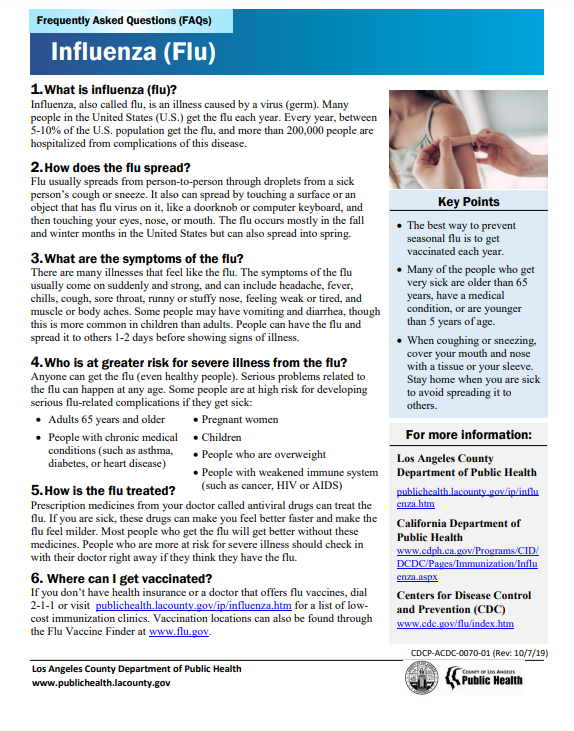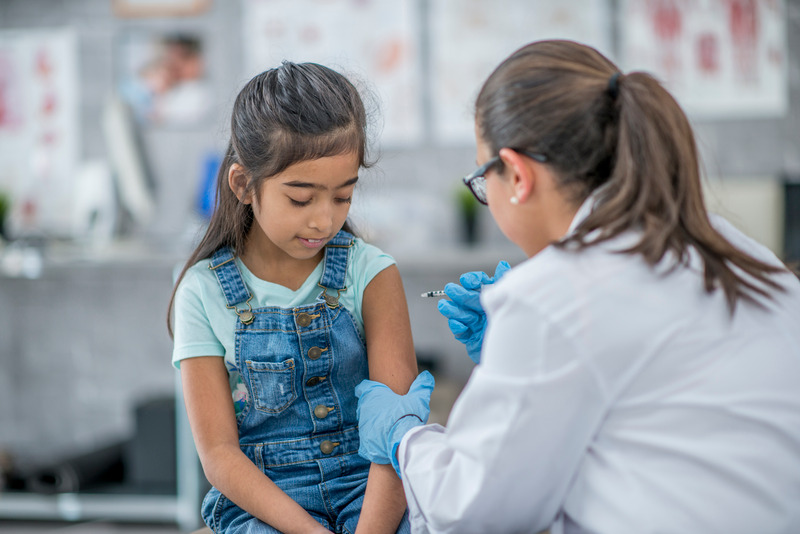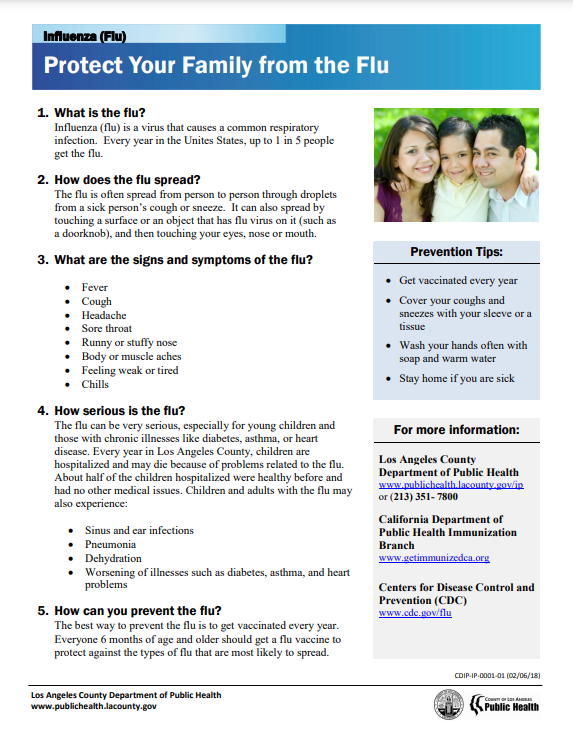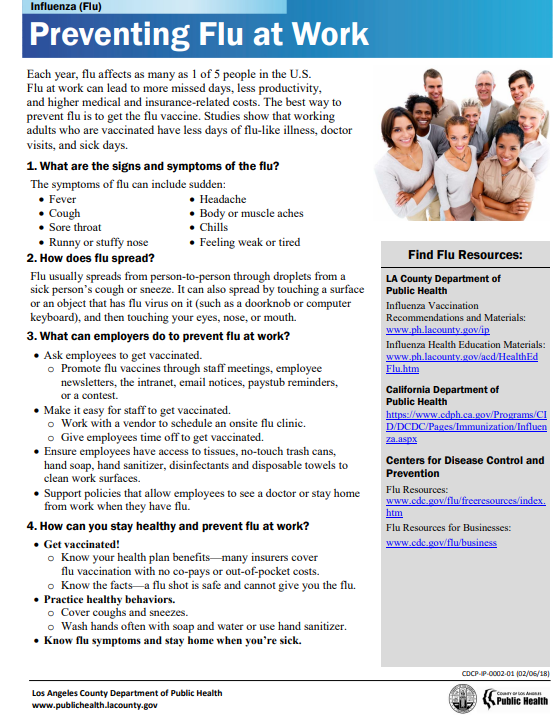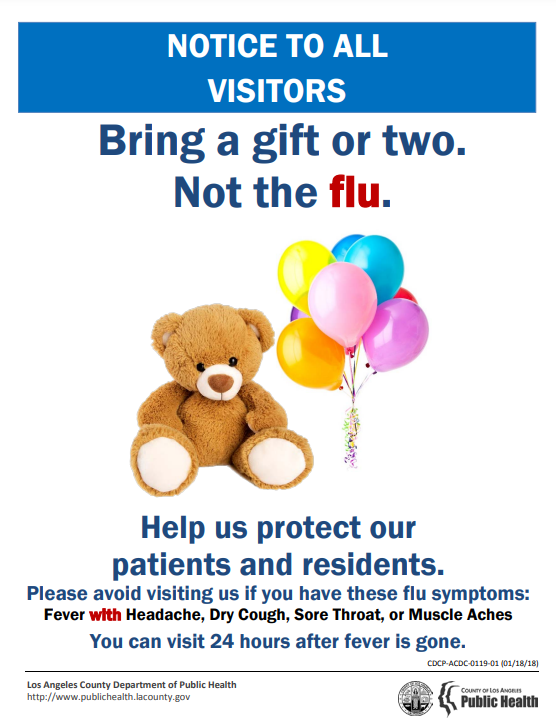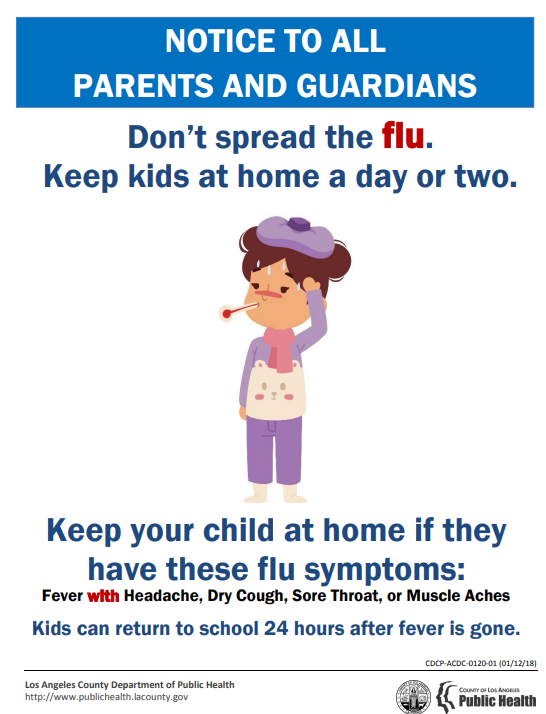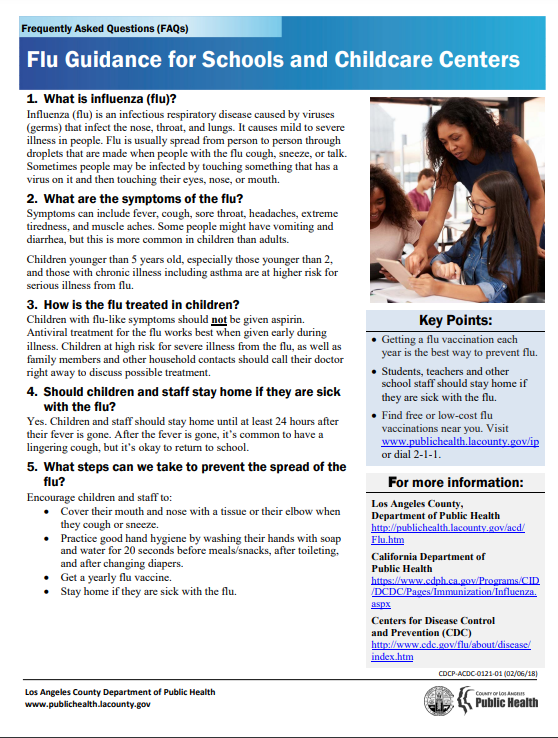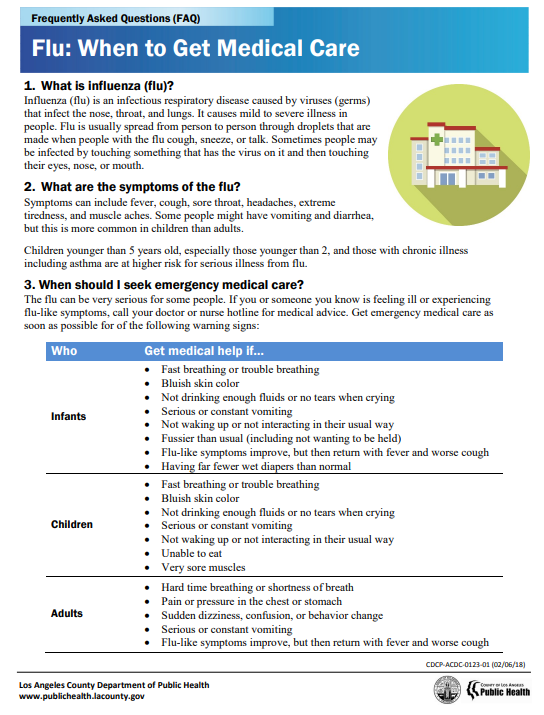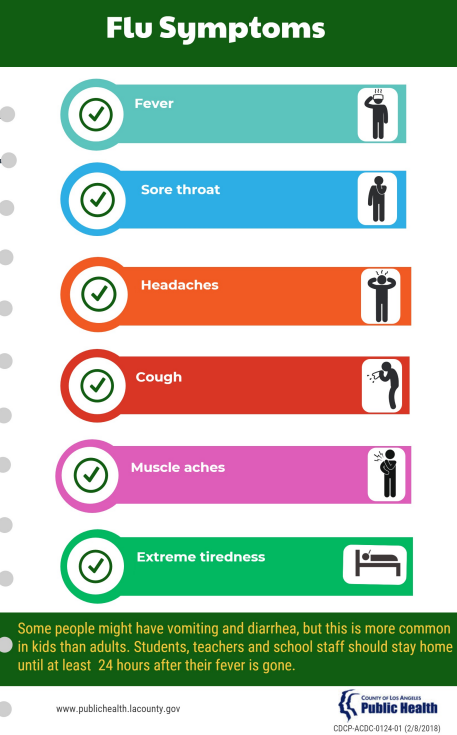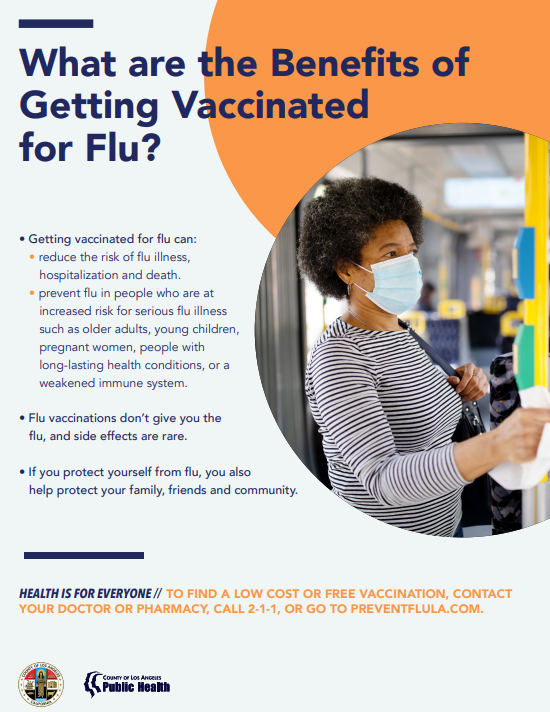CDC recommends everyone 6 months and older receive an annual influenza (flu) vaccine.
It’s especially important to vaccinate people at increased risk for severe flu complications. This includes:
- Adults aged ≥65 years
- Children aged <2 years
- Pregnant people
- People with chronic health conditions (heart, lung, kidney, and liver disease)
- People with neurologic and neurodevelopment conditions
- People with metabolic, blood, or endocrine disorders
- People who are obese or have a BMI ≥40
- People younger than aged 19 years on long-term aspirin- or salicylate-containing medications.
- People with a weakened immune system due to disease (such as people with HIV or AIDS, or some cancers such as leukemia) or medications (such as those receiving chemotherapy or radiation treatment for cancer, or persons with chronic conditions requiring chronic corticosteroids or other drugs that suppress the immune system)
- People who have had a stroke
- People with certain disabilities—especially those who may have trouble with muscle function, lung function, or difficulty coughing, swallowing, or clearing fluids from their airways.
- People who live in nursing homes and other long-term care facilities
- People from certain racial and ethnic groups including American Indian/Alaska Native
Children aged 6 months through 8 years may need an additional dose of flu vaccine depending on their previous vaccination history.
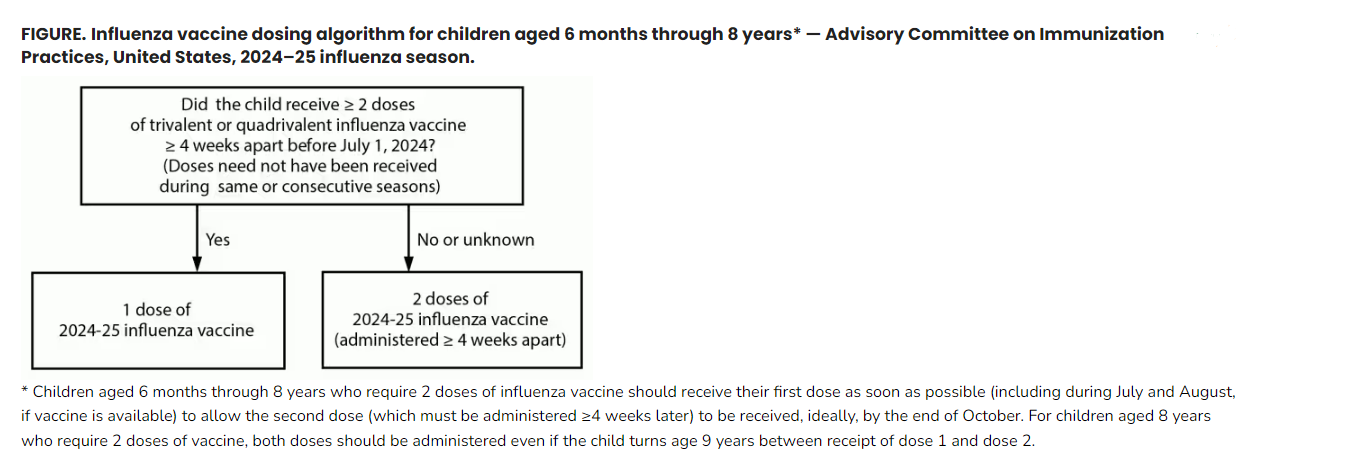
CDC preferentially recommends the following flu vaccines for adults aged ≥65 years:
However, if none of these 3 preferentially recommended vaccines are available at the time of the visit, administer any age–appropriate flu vaccine instead.
Organ transplant recipients aged 18 – 64 years taking immunosuppressive medications may receive high – dose flu (Fluzone) or adjuvanted inactivated influenza vaccine (Fluad). These vaccines are not preferred over other age-appropriate flu vaccines but are acceptable options for this population.
Flu vaccines are safe and effective in reducing the risk of severe illness, hospitalization, and death from flu. However, they may not always prevent infection. Additional information and vaccine effectiveness studies can be found on CDC’s Seasonal Flu Vaccine Effectiveness Studies webpage.
Live attenuated influenza vaccine (LAIV) can be given to healthy people aged 2 – 49 years. LAIV is not recommended for some groups, such as people who are pregnant and people with some medical conditions.
A full list of 2025-2026 Influenza vaccines can be found here.
Click here for contraindications and precautions to influenza vaccine.


